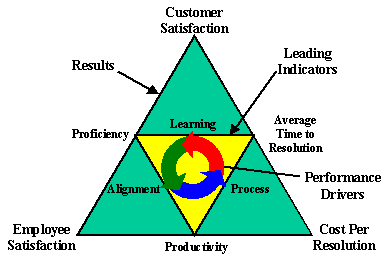HealthyWorkplaces
Mental health challenges are now the norm among employees across all organizational levels. According to a recently published research in the Harvard Business Review, Seventy-six percent of respondents reported at least one symptom of a mental health condition in the past year; up from 59% in 2019.
More employees are leaving their jobs for mental health reasons, including those caused by workplace factors like overwhelming and unsustainable work. While the 2019 rates of attrition were already surprisingly high, they’ve gone up even more since then. Sixty-eight percent of Millennials (50% in 2019) and 81% of Gen-Z’s (75% in 2019) have left roles for mental health reasons, both voluntarily and involuntarily, compared with 50% of respondents overall (34% in 2019). Ninety-one percent of respondents believed that a company’s culture should support mental health, up from 86% in 2019. This does not even take into account other related health disorders which manifest due to mental health and long-term stress, such as obesity, substance abuse, migraines, joint pain, heart disease, and cancer. Two thirds of Americans are obese or overweight and this means $147 billion in health costs.
High prevalence.
The study also showed the same prevalence of mental health symptoms across all levels of seniority, debunking the myth that successful leaders are immune. The 2021 study showed that C-level and executive respondents were now actually more likely than others to report at least one mental health symptom. Let’s finally put the stigma to rest and admit that mental health challenges affect all of us.
The Company’s Role in Employee Mental Health
Employees don’t experience mental health challenges in isolation. Employers play a role, in to that experience.
Certain workplace factors negatively affected mental health.
The way we’re working isn’t sustainable, and it’s hurting our mental health. Until recently, the conversation has primarily centered on preexisting mental health conditions and the related stigma. Increasingly, the focus is on work’s effect on everyone’s mental health.
An overwhelming 84% of respondents reported at least one workplace factor that negatively impacted their mental health. The workaholism that characterizes much of U.S. culture has only been exacerbated by the challenges of the pandemic, leading to increased employee burnout.
Companies are increasingly investing in employee mental health
Companies are finally investing more in mental health support out of necessity, but they still haven’t achieved true culture change. The availability of many resources provided by employers has grown since the pandemic, including extra paid time off, company-wide mental health days, and mental health training.
Although employers are using accommodations to a much greater extent, especially to those that provided day-to-day support. We have found that utilization rates for other accommodations are very absent. This highlights a gap in what employees used versus what employers provided, which were often Band-Aid solutions. In fact, according to our research, the “solution” most desired was not even addressed.
Mental Health needs to be a culture change
As the number of healthy employees in an organization shrinks, so do the bottom-line results for the employer. Trust cannot be faked. It is at the core of what all of us are programmed to want.Employers that have supported their employees with the pandemic, racial injustices, return-to-office planning, and/or mental health overall have better mental health and engagement outcomes. Employees who are supported with their mental health are 26% less likely to report at least one symptom of a mental health condition. Employees who feel supported by their employer are less likely to experience mental health symptoms, less likely to underperform and miss work, and more likely to feel comfortable talking about their mental health at work. In addition, they have higher job satisfaction and intentionally stay at their workplace. And as a result, they have more positive views of their company and it’s leaders, trust their companies and are proud to work there.
What Employers Need to Provide
Employers must move from seeing mental health as an individual challenge to a collective priority. Given all the workplace factors at play, companies can no longer compartmentalize mental health as an individual’s responsibility to address alone through self-care, mental health days, or employee benefits. Mental health needs to be front and center and supported by organization culture.
The massive societal shifts underway have changed company cultures and employee perceptions around mental health. Although employers have started to invest more, employees have rightfully increased their expectations. The future of workplace mental health demands culture change. Center for Work Life started down the path of helping organizations big and small since 2007. Thanks to Covid-19, the cultural changes we have helped put in to place proved to be a very strong barrier with our organizations. Let’s not wait for another societal disaster before we become intentional in crafting healthy ways of working instead of rushing back to the status quo. Let us help you imagine what that could look like for your team and organization.
As employers consider investing in employee wellness programs, many want to know that there will be a positive return on investment (ROI), typically calculated as a ratio of health plan dollars saved per dollar invested.
The report by a team of Harvard University health economists, published in the journal Health Affairs, found that the average medical cost savings per dollar invested in wellness programs was $3.27. The report’s finding was based on an analysis of more than 20 peer-reviewed ROI studies.
Few other health-related investments come close to having this much ROI support.
Employee Wellness Program- Be-LIVE
Through our employee wellness program at Center for Work Life, Be-LIVE, whether you start with a small group such as leadership, a department, or boldly aim for large-scale behavior modification, organization-wide, the leading indicators are what our focus is on.
Productivity alone is deceiving and numbers can say what you want them to say. Rely on a time tested research and psychologist-designed program that can save your organization’s talent; it’s greatest asset.
Ready to make progress? Get started today!
©Be-LIVE program (The Healthy Organization) is copyright of Center for Work Life.
Center for Work Life of Orlando, Florida is an award-winning executive development firm providing leadership and management training to executives and organizations. Our main services include executive coaching, leadership development, executive succession planning, emotional intelligence training, career planning, staff development, and communication in the workplace.
Needs and topics addressed within these categories include: management styles, situational leadership, developing leadership qualities, executive recruitment training, work life balance, emotional intelligence training, work performance, stress management in the workplace, stress management activities, time management activities, team development, problem solving activities, management consulting training programs, professional communication, assertive communication coaching, interpersonal skills for top performers, effective communication styles, communication techniques, public speaking skills, presentation skills, and conflict management strategies.
Effective Public Speakers can be difficult to find, but Center for Work Life has that covered too. As a leadership, communications, and change management speaker, Dr. Farnaz Namin- Hedayati of Center for Work Life raises the bar in interactive presentations. We can also help companies conduct organization research and run focus groups.















